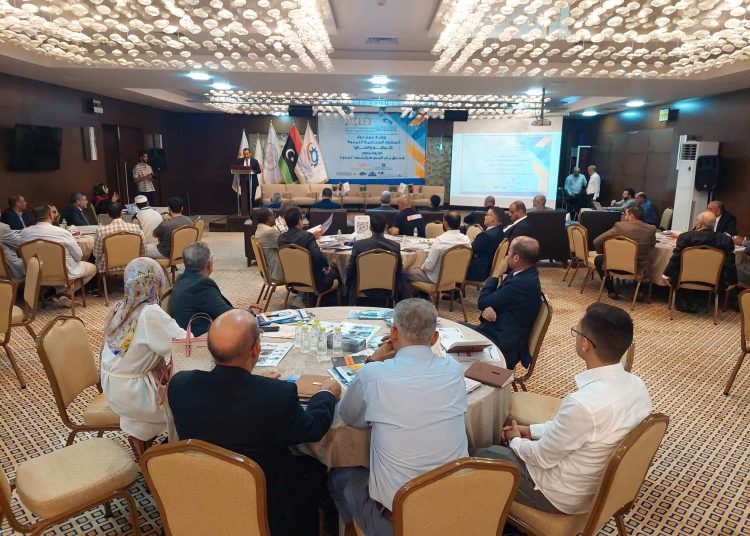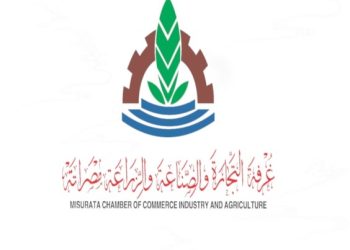The Libyan Industry Union (LIU) and the Libyan Experts Forum (LEF) issued 20 recommendations following their jointly organised workshop entitled ‘‘Libyan Industrial Exports – Reality and Prospects’’ held on 29 August at a central Tripoli hotel.
The recommendations read as follows:
1- The need to develop a strategy with clear features, objectives, programmes and activities to promote the industrial sector, based on the activity of export industries for goods and products that enjoy a comparative competitive advantage in their production and export.
2- Building an electronic database for the industrial sector to link this data to all relevant sources of information in other sectors and institutions and enabling decision-makers to benefit from it within the framework of developing a strategy to promote industry and export industries specifically.
3- Benefiting from the advanced laboratories and equipment available at the Industrial Research Centre and harnessing them to develop industrial companies, especially small and medium enterprises and export industries, to develop their products, improve their quality, select and examine products to ensure their compliance with the required quality standards, and accelerate the examination process and extract results.
4- Strengthening the role of banks and directing them to support exports. Banks should play a more effective role in financing and guaranteeing exports and granting easy credit facilities to companies exporting industrial products and providing insurance programmes and guaranteeing exports against export risks.
5- Developing an integrated package of banking products and services that meet the needs of exporting industrial companies, including export loans, guaranteeing and enhancing export credits, collection services and financing for external payments.
6- Coordination between banks and relevant government agencies within the framework of working to overcome the difficulties facing export activity in accordance with controls and guidelines issued by the competent authorities and adhered to by all concerned parties.
7- Establishing investment funds specialized in export financing, in which banks and the private sector contribute, with the aim of providing financing for export industrial projects and related activities.
8- Opening a window or platform on the website of the LIU to receive correspondence from exporters regarding identifying available export opportunities and identifying the obstacles they face that hinder them from exporting their products to foreign markets, so that all data and information are referred to specialized technical committees that recommend taking the necessary and possible measures. The LIU undertakes to follow up on their implementation until the problem is resolved and explained, and the LIU’s efforts in this field are supported and enabled to carry out its tasks in the most complete manner.
9- Imposing strict quality standards on imported industrial products to ensure their compliance with local standards and specifications and preventing the entry of low-quality products that do not consider consumer protection requirements and expose local industrial products to unfair competition.
10- Applying the principle of reciprocity by subjecting imported industrial products to the same conditions and controls imposed by other countries on Libyan industrial exports within the framework of protecting the national industry, considering bilateral, regional and international agreements specifically.
11- Supporting and protecting Libyan industrial exports if they are subject to protectionist measures by some countries by providing technical and legal assistance to Libyan exporting companies that are subject to these protectionist measures.
12- Developing ports, airports, internal transport networks and land transport to facilitate export operations, reduce transport costs and access markets within the framework of improving the infrastructure and logistics of export activities within the framework of the strategy of diversifying sources of income and economic diversification.
13- Resorting to imposing protective customs duties on imported products that compete with prepared local industries in which Libya has a comparative advantage until these industries stop and rely on their own capabilities and ability to compete with imported products and commit to temporary protection.
14- Emphasizing the importance and role of local and international exhibitions to introduce Libyan products and increase awareness of them in global markets and support the efforts of the LIU in this field.
15- Launching an electronic platform by the Ministries of Economy and Trade and Industry, which identifies the projects and sectors in which the private sector operates and which have a competitive advantage and investment opportunities, within the framework of the strategy to diversify the national economy, such as food industries, building materials industries, metal industries, and others. Other industries whose raw materials are available locally and encouraging the national private sector to engage in them and provide the necessary electronic services for them, such as issuing certificates of origin electronically.
16- Working to protect the national economy from the effects resulting from the practices issued by the World Trade Organization until the file for joining this organization is completed and benefiting from the advantages it provides to the countries under it and working to revive the file for joining the World Trade Organization and follow up on the issue for what this requires in terms of conditions and stages before obtaining membership and evaluating the current position of the Libyan state and determining the damages or advantages associated with seeking membership or not.
17- Developing work mechanisms in the General Authority of Customs to facilitate the procedures for exporting products and coordinating with the industrial sector in any decisions or procedures that may affect the activity of the export sector.
18- Developing the primary, intermediate, university and intermediate education sector to ensure improving the performance of industrial companies and reducing production costs with the aim of providing the costs of qualifying and training those who are employed in the industrial sector.
19- Assisting industrial companies that have surplus production and seek to export it, such as the Libyan Iron and Steel Company (LISCO).
20 – Forming a committee with the membership of the LIU to follow up on the transformation of recommendations into work programmes and to issue the required decisions to overcome many of the obstacles facing export industries.










